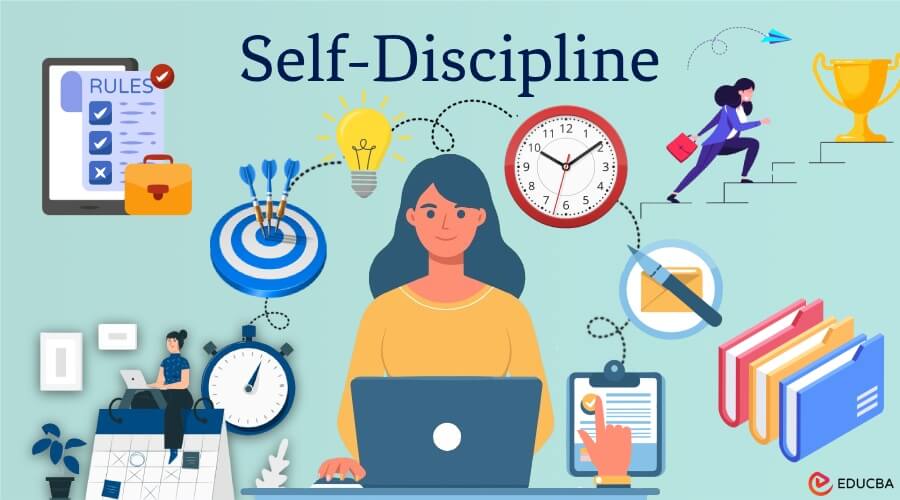In today’s fast-paced world, distractions are everywhere, from social media notifications to endless entertainment options. Amid this chaos, one quality stands out as a key determinant of personal and professional success: self-discipline. Self-discipline is the ability to control one’s impulses, emotions, and behaviors to achieve long-term goals. It is more than just willpower; it is a habit, a mindset, and a lifestyle that shapes a person’s ability to succeed and lead a fulfilling life.
Understanding Self-Discipline

Self-discipline is often misunderstood as mere restriction or deprivation. In reality, it is the practice of making intentional choices that align with your goals and values. It is the difference between giving in to momentary desires and making decisions that benefit your future self. People who develop self-discipline learn to delay gratification, resist temptations, and stay focused on what truly matters.
At its core, self-discipline is about consistency. It allows individuals to persist in the face of challenges, overcome procrastination, and maintain focus even when motivation wanes. Motivation is fleeting; self-discipline is what ensures progress when enthusiasm fades. It is the bridge between goals and achievements.
The Role of Self-Discipline in Personal Growth
Personal growth is closely tied to self-discipline. Whether it is adopting a healthier lifestyle, learning a new skill, or building meaningful relationships, self-discipline provides the foundation. For instance, someone who wants to improve their physical health must resist the temptation of unhealthy foods and commit to regular exercise. Without self-discipline, even the best intentions often remain unfulfilled.
Self-discipline also enhances mental strength. It teaches individuals to manage their emotions, reduce stress, and make rational decisions under pressure. By practicing self-control, people develop patience, resilience, and the ability to navigate life’s challenges without being overwhelmed by impulses or external pressures.
Impact on Professional Success
In the professional realm, self-discipline is indispensable. It influences productivity, time management, and overall performance. Employees and entrepreneurs who are self-disciplined can prioritize tasks, meet deadlines, and maintain high standards consistently. They are less likely to procrastinate, more likely to seek solutions, and capable of handling responsibility effectively.
Leaders, in particular, benefit greatly from self-discipline. A disciplined leader sets an example for others, maintains focus on organizational goals, and makes decisions based on logic rather than emotions. Teams often mirror the discipline of their leaders, creating a culture of accountability and excellence.
Self-Discipline and Financial Stability

Financial success also hinges on self-discipline. Controlling spending, saving consistently, and making informed investment choices require the ability to resist immediate gratification for future gains. Without self-discipline, even a high income can quickly be wasted. Conversely, disciplined financial habits lead to long-term security, reduced stress, and the ability to achieve personal dreams, such as buying a home, traveling, or retiring comfortably.
Building Self-Discipline
Developing self-discipline is not an overnight process; it requires conscious effort and practice. Setting clear goals is the first step. When you know what you want to achieve, it becomes easier to align your actions with those objectives. Breaking goals into smaller, manageable tasks can prevent overwhelm and increase motivation.
Creating routines and habits is another effective strategy. By consistently practicing positive behaviors, discipline becomes automatic over time. For example, waking up early, exercising regularly, or dedicating time to learning can become habitual with consistent effort.
Additionally, self-awareness is crucial. Recognizing triggers that lead to distractions or poor decisions allows individuals to develop strategies to avoid them. Accountability, whether through journaling, tracking progress, or seeking support from others, can further strengthen self-discipline.
The Rewards of Self-Discipline
The benefits of self-discipline are profound and far-reaching. It fosters independence, confidence, and a sense of control over one’s life. Self-disciplined individuals are more likely to achieve their goals, experience personal fulfillment, and maintain balance in their lives. They enjoy the satisfaction of knowing that their success is a result of intentional effort rather than luck or circumstance.
In relationships, self-discipline promotes patience, empathy, and effective communication. In health, it encourages consistent exercise, balanced nutrition, and mental wellness. In career and finances, it drives productivity, reliability, and smart decision-making. Ultimately, self-discipline empowers individuals to live life on their terms, rather than being controlled by fleeting desires or external pressures.
Conclusion
Self-discipline is not a restrictive force; it is a liberating one. It is the foundation upon which success, personal growth, and fulfillment are built. While talent, opportunity, and luck play roles in life, self-discipline is the factor that sustains progress, turns goals into reality, and transforms potential into achievement. In a world full of distractions, developing self-discipline is not just important—it is essential. By cultivating this invaluable quality, individuals can navigate life’s challenges with resilience, make meaningful progress, and create a future they truly desire.

